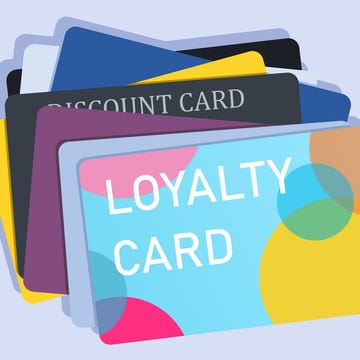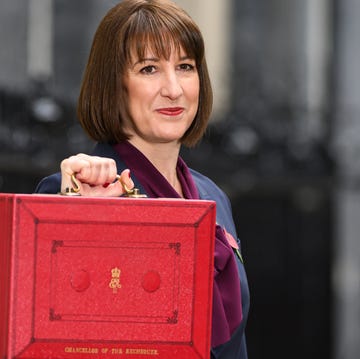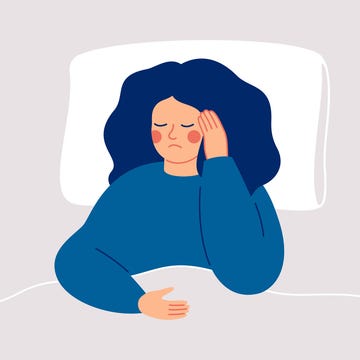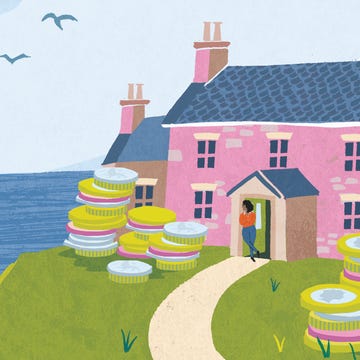If you are claiming benefits for the first time, it can be a challenge working out what benefits you can and can't claim. Contrary to what you might think, you don’t have to be out of work to qualify for help from the state.
There are many different reasons why you might qualify for Government support, such as if you have lost your job, have a child, earn below a certain amount or have taken time off work to look after children or parents.
The benefits are there to be claimed, but it is estimated that almost £20 billion in Government benefits goes unclaimed every year, often by the people who need it the most.
Policy in Practice is an analytics company working with councils, government, housing providers and community organisations. Its latest report (April 2024) reveals that people are missing out on everything from Universal Credit, Pension Credit, Carer's Allowance and Child Benefit, to locally-administered benefits such as Council Tax support, Housing Benefit, Free School Meals and Healthy Start (help to buy food for new and soon-to-be parents).
If you include social tariffs and energy support, such as help with bills, the Warm Homes Discount and free TV licences, the total amount unclaimed reaches a colossal £23 billion.
Not knowing what you are entitled to or how to claim means that the money never makes it to the people it's intended for, which can have a huge impact.
"This is not just about the money, it’s about the profound impact on people’s lives," says Deven Ghelani, Director and founder, Policy in Practice. "Support from the social security system is a right. The failure to deliver support to people who are entitled to it directly affects education, health outcomes and social participation for millions of people. We can’t afford not to close the unclaimed support gap."
Why do so many people miss out on benefits?
According to Policy in Practice, there are three main reasons why people aren't claiming the full amount to which they are entitled: the claiming process is too complicated, people aren't aware that they are eligible for certain benefits, and negative perceptions around benefits deters many people from claiming.
But to make sure that you don't miss out on anything to which you are entitled, here's our guide to the key benefits you might be entitled to and how to access them.
Can I claim Universal credit?
"People of working age who’ve lost their jobs or had a drop in income may be entitled to Universal Credit," says Nick Hill, senior advice manager with the Money and Pensions Service.
You can claim Universal Credit if you are either out of work, working (including self-employed or part time) or unable to work, for example because of a health condition.
Rules can be complex but to be eligible for Universal Credit, you must usually be over 18, but under state pension age, with less than £16,000 in money, savings or investments. (You might also be able to claim Universal Credit if you are 16 or 17 under certain circumstances).
The monthly allowance starts from £311.68 for under 25s and £393.45 for over 25s. Couples living together are entitled to £489.23 for both of you (under 25s) or £617.60 (if either one of you is 25 or over). You might get more if you have children, a disability or a health condition.
Universal Credit is paid monthly, but the first payment can take up to five weeks to arrive. Find out more and apply online on the Government website.
Can I claim Carer’s Allowance?
You may be able to claim this if you spend at least 35 hours a week caring for a family member or friend, with some form of disability or mobility problems.
You could get £81.90 a week if you care for someone for at least 35 hours a week and they get certain benefits such as Personal Independence Payment or Disability Allowance.
Claiming Carer's Allowance could affect other benefits you receive so check the rules first. If you claim Carer's Allowance you should also be entitled to National Insurance credits which will help you qualify for the State Pension.
Can I claim Pension Credit?
This is for people who are over state pension age and on a low income. It’s made up of two parts: Guarantee Credit and Savings Credit. Guarantee Credit ‘tops up’ your weekly income to a guaranteed minimum level, which is currently (tax year 2024/2025) £218.15 for single people and £332.95 for a couple.
Savings Credit is paid as a ‘reward’ if you’ve saved for your retirement, for example through a pension scheme. However you can only start claiming Savings Credit if you reached state pension age before 6th April 2016, or you have a partner who reached state pension age before this date and was already receiving it. It’s worth up to £17.01 a week for a single person and £19.04 for a couple.
Find out more and use the Government’s Pension Credit calculator to see how much you could get.
Can I claim Child Benefit?
You can claim this if you’re responsible for a child under 16, or under 20, providing they’re in full time education or training. Child Benefit is currently worth £25.60 for your first or only child, and £16.95 for any additional children.
By claiming Child Benefit, you can get:
- an allowance for each child - you’ll usually get it every four weeks
- National Insurance credits which count towards your State Pension
- a National Insurance number for your child without them having to apply for one - they’ll usually get the number shortly before they turn 16 years old
If you claim Child Benefit and yours, or your partner’s income, tops £50,000, you will pay extra tax charges. Known as the ‘High Income Child Benefit Charge’, you pay back a percentage of the benefit according to the amount earned over £60,000 (it was increased in the 2024 Budget). Once your income, or your partner's income, tops £80,000, you can no longer receive Child Benefit. Use the Child Benefit Tax Calculator to check how much you could pay.
Even if you don't want to claim Child Benefit, for example if your or your partner's income is over the threshold, you should still make a claim, as this means you get National Insurance credits to put toward your State Pension entitlement,
If you’ve not previously claimed, due to your income, but are now earning less, you can still make a new claim.
Can I claim Attendance Allowance?
Attendance Allowance helps with extra costs if you have a disability severe enough which mean that you need someone to help look after you. Attendance Allowance is paid at two different rates, depending on the level of care you need. You could get £72.65 or £108.55 a week to help with personal support, but you don't need to have someone caring for you to claim. Find out more and how to claim.
Can I get Council Tax Support?
Not many people know that if you are on a low income or claim benefits, you could get up to 100 per cent of your council tax bill paid for you, with £3.4 billion in Council Tax Support (also known as Council Tax Reduction) going unclaimed every year, according to Policy in Practice. You can apply if you own your home, rent, are unemployed or working.
What you get depends on:
- where you live - each council runs its own scheme
- your circumstances (for example income, number of children, benefits, residency status)
- your household income - this includes savings, pensions and your partner’s income
- if your children live with you
- if other adults live with you
Find out if you are eligible for Council Tax support by entering your postcode here.
Using a benefits calculator
If you’re unsure if you could be due some extra cash, use the free Benefits Calculator from the Money and Pensions Service to see what financial support is available. There are also free benefits calculators at Turn2Us or Stepchange.
Once you know what you can claim, you can apply through the Government website.
Some benefits are paid weekly; while others like Universal Credit are monthly. Benefit claims can usually only be backdated for three months so claim as soon as you can. Always contact the relevant Government department if your circumstances change, as this can affect any benefits you receive.















